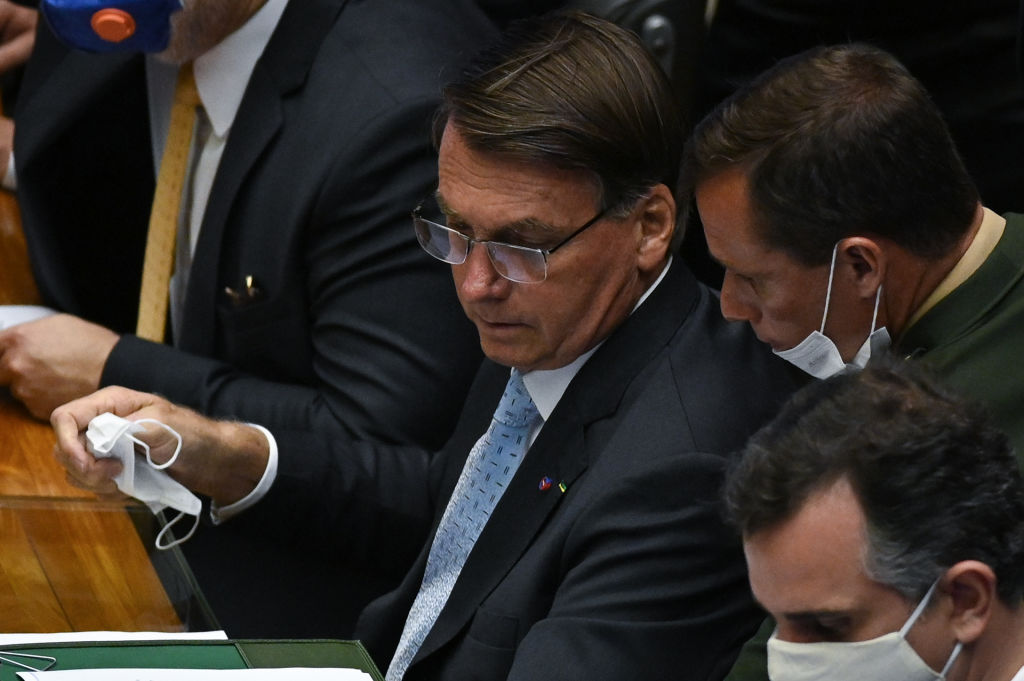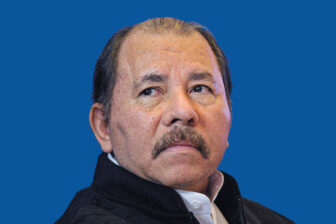SÃO PAULO – When in 2018 Brazilians elected as president a former army captain with an explicitly authoritarian rhetoric, who glorified the military dictatorship, worshipped a torturer and openly spoke about imprisoning his political opponents and undermining checks and balances, numerous scholars, journalists and policymakers expressed concern that irreparable damage would be done to Brazil’s democracy. Since then, Brazilian observers have almost constantly been on edge about the state of the country’s three-decade-old democracy and the risk of a return to the dark days of authoritarian rule.
And yet, while no doubt ruffled, so far Brazilian democracy remains alive and resilient despite the political climate, which has worsened considerably since President Jair Bolsonaro’s election. While the president has openly sought to erode Brazil’s democracy, he has so far failed to inflict irreversible damage. It is interesting to consider why.
The overtly anti-democratic rhetoric embraced by Bolsonaro, his allies and his followers has deepened polarization, rendering a constructive public debate on how to tackle Brazil’s most pressing challenges more difficult, as the country’s chaotic response to the pandemic attests. While infection rates in many countries are declining, COVID-19 is killing more Brazilians per day than ever, despite having the world’s largest free public health system and one of the most respected immunization programs in the developing world.
Three trends are particularly worrisome. One is the growing number of retired and active-duty military men in the Bolsonaro government, now standing at more than 6,000 — higher than during the country’s military dictatorship —and including numerous top cabinet positions such as Health, Mines and Energy, Infrastructure, Defense, Science and Technology and, most recently, the next CEO of Petrobras. Another worrisome trend are Boslonaro’s and allies’ increasingly frequent attacks and threats against journalists, academics, civil society, the LGBT community, indigenous populations and opposition politicians in general.
Bolsonaro’s relationship to the Supreme Court also remains troubled. During a now notorious cabinet meeting on May 22 last year, Bolsonaro declared he wanted to send troops to close the Supreme Court, only to be convinced to hold off by Generals Augusto Heleno and Walter Souza Braga Netto, two of his closest advisors. The story was leaked in remarkable detail to Piauí, a respected magazine — a move that did not aim to incriminate the president, but was most likely intended as a message to the Supreme Court justices. Bolsonaro, the source wanted them to know, was not bluffing and was ready to take radical action if they made his life difficult (the generals involved have denied the story).
But three other trends in particular inspire hope: First, despite Bolsonaro’s almost daily attacks against journalists, most Brazilian newspapers are not toeing the government line. Quite to the contrary: Many TV, radio, print and online outlets are unafraid to point out the government’s numerous failures and inconsistencies, and openly criticize his authoritarian instincts, leading the president to accuse the media of being engaged in a “campaign against Brazil.” While critical writing has landed numerous journalists in jail in Turkey, and Hungarian media is increasingly dominated by pro-government outlets, Bolsonaro has so far failed to intimidate Brazil’s fiercely vibrant media and public debate. Courts have defended journalists from government attacks. Last month, for example, Bolsonaro’s son, lower house representative Eduardo Bolsonaro, was ordered to pay $5,600 in compensation for moral damage after spreading lies about Patrícia Campos Mello, an investigative journalist at Folha de São Paulo.
In the same way, despite numerous threats against academics, debates at universities and scholarly publications remain largely free. Freedom House categorized Latin America’s largest country as “free” and ranked it above India, Hungary, Turkey, Mexico and the Philippines, countries to which Brazil is sometimes compared in debates about the crisis of democracy.
Secondly, the president’s plan to establish his own “Alliance for Brazil” party never materialized, falling far short of the minimum number of required signatures. Bolsonaro — who remains unaffiliated — saw himself forced to adopt a less confrontational approach vis-à-vis Congress and now governs precisely the way he vowed not to as a candidate — through traditional backroom deals, the distribution of pork and public sector jobs to allies in exchange for non-loyal political support. Despite throwing his support behind and helping elect the new presidents of the House and the Senate, Bolsonaro has so far failed to bring legislators or the courts under his control.
Finally, municipal elections in late 2020 were not only free and fair, but also revealed that the anti-establishment wave and disillusionment with traditional politics that had carried Bolsonaro to the presidency had subsided substantially. Numerous candidates who presented themselves as Bolsonaro allies, or who received direct backing from the president, failed miserably. Traditional center-right parties outside of Bolsonaro’s direct orbit did well (their support for the president in 2022 is not assured), while the socialist party PSOL emerged as a serious challenger to Lula’s Workers’ Party, the traditional dominant force on the left. Brazil’s 2020 regional elections very much seemed like a return to politics as usual.
Yet while winning on points so far, it would be too early to confirm that Brazil’s democracy will emerge victorious from its confrontation with the first openly authoritarian-minded president since the end of the military dictatorship. After all, even when institutions react to anti-democratic moves — such as when the Supreme Court recently ordered the detention of a pro-Bolsonaro congressman who said the judges had ties to drug traffickers and deserved to be beaten in the streets — they might not necessarily strengthen their “democratic muscle,” but instead contribute to the corrosion of the democratic system. In the same way, the Supreme Court’s attempts to fill in for the government’s most egregious failings, such as ordering the government to deliver oxygen and supply the needs of hospitals in Manaus after the Health Minister’s omission during the collapse of the health system in the Amazonas capital, may address a specific problem, but risks straining the relationship between the executive and the judiciary.
Bolsonaro could very well lose the election in 2022, but if that happens electoral officials have said that a challenge to the election’s outcome is “inevitable.” The president has consistently sought to sow doubt about election integrity and said Brazil could have a “worse problem” [of alleged fraud] than the United States in 2020. Indeed, a replay of recent events in the U.S. — including the incumbent’s refusal to concede and the political violence that failed to stop the transfer of power — can be considered a best-case scenario for Brazil in 2022. The risk that Brazil’s armed forces and police — part of his political base — will behave differently than their U.S. counterparts should not be underestimated. In this context, Bolsonaro’s recent decrees to loosen gun laws and attempts to centralize power over military police forces, today under the command of state governors, could be interpreted as setting the stage for a coup, if needed.
While the risk of a Fujimori-style self-coup seems limited at this stage, there are eerie parallels to the slow erosion of democracy in neighboring Venezuela over the past two decades. Bolsonaro’s tendency to fill his cabinet and other strategic posts with generals has led Brazilian observers to refer to the government as bolsochavista. While an electoral victory by a — yet-undefined — broad democratic alliance in 2022 could assure that Bolsonaro goes down in history as a brief but ultimately manageable threat to Brazil’s democracy, his reelection could pose a far more serious problem. After all, elected authoritarians, as seen in Venezuela, the Philippines and Hungary, usually start implementing more radical anti-democratic reforms after winning reelection.
While Brazil’s democracy has so far withstood Bolsonaro’s attacks remarkably well, the biggest test is yet to come.









